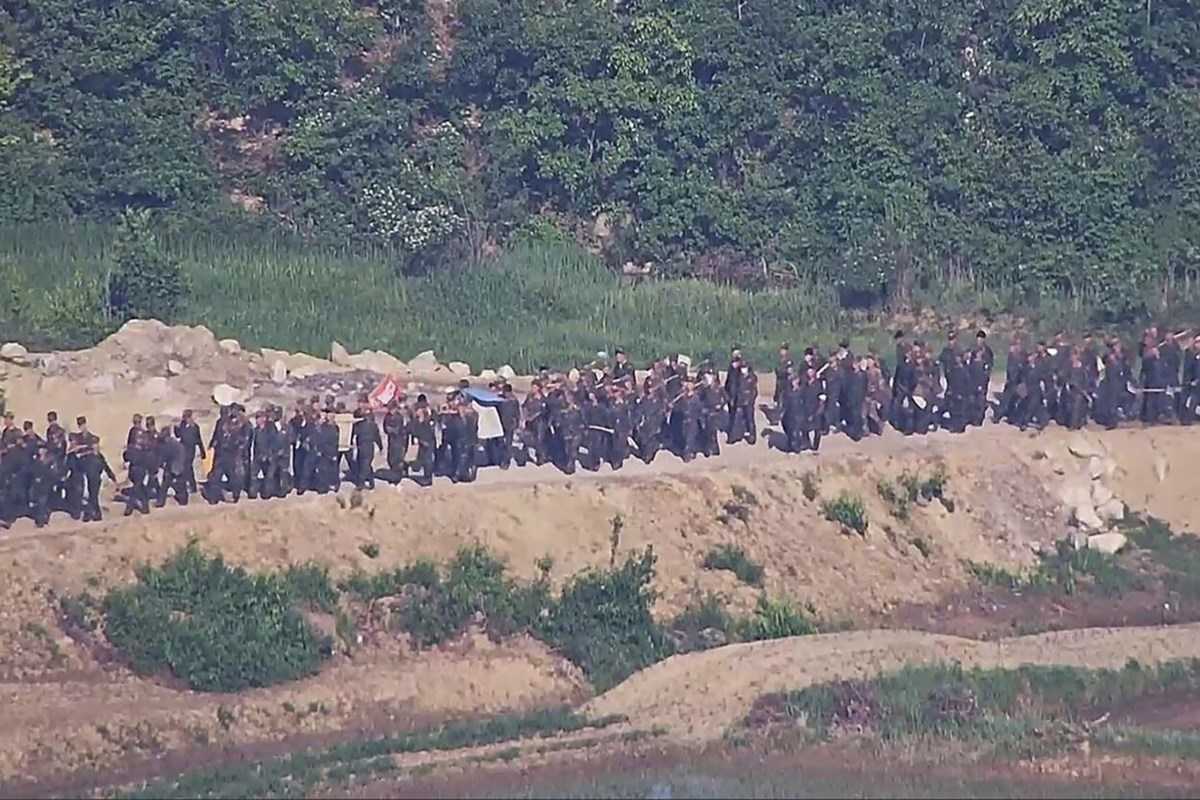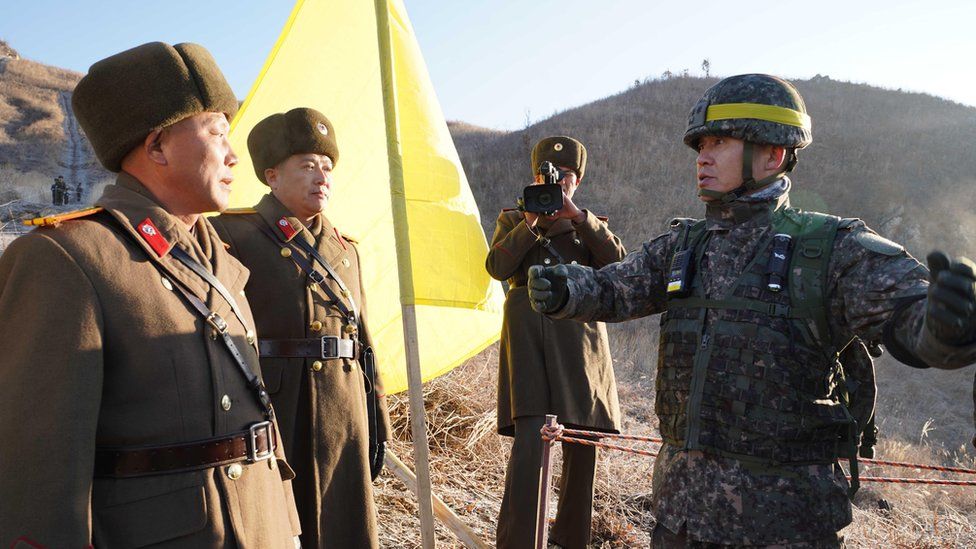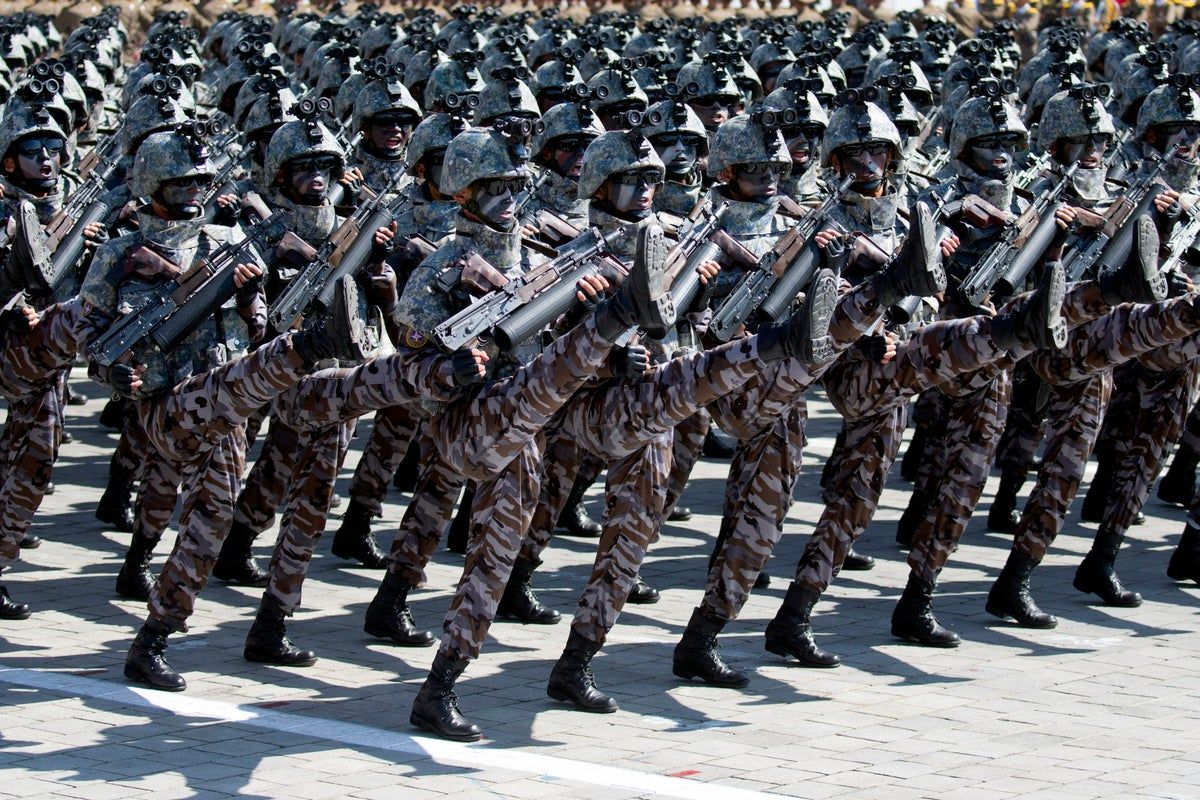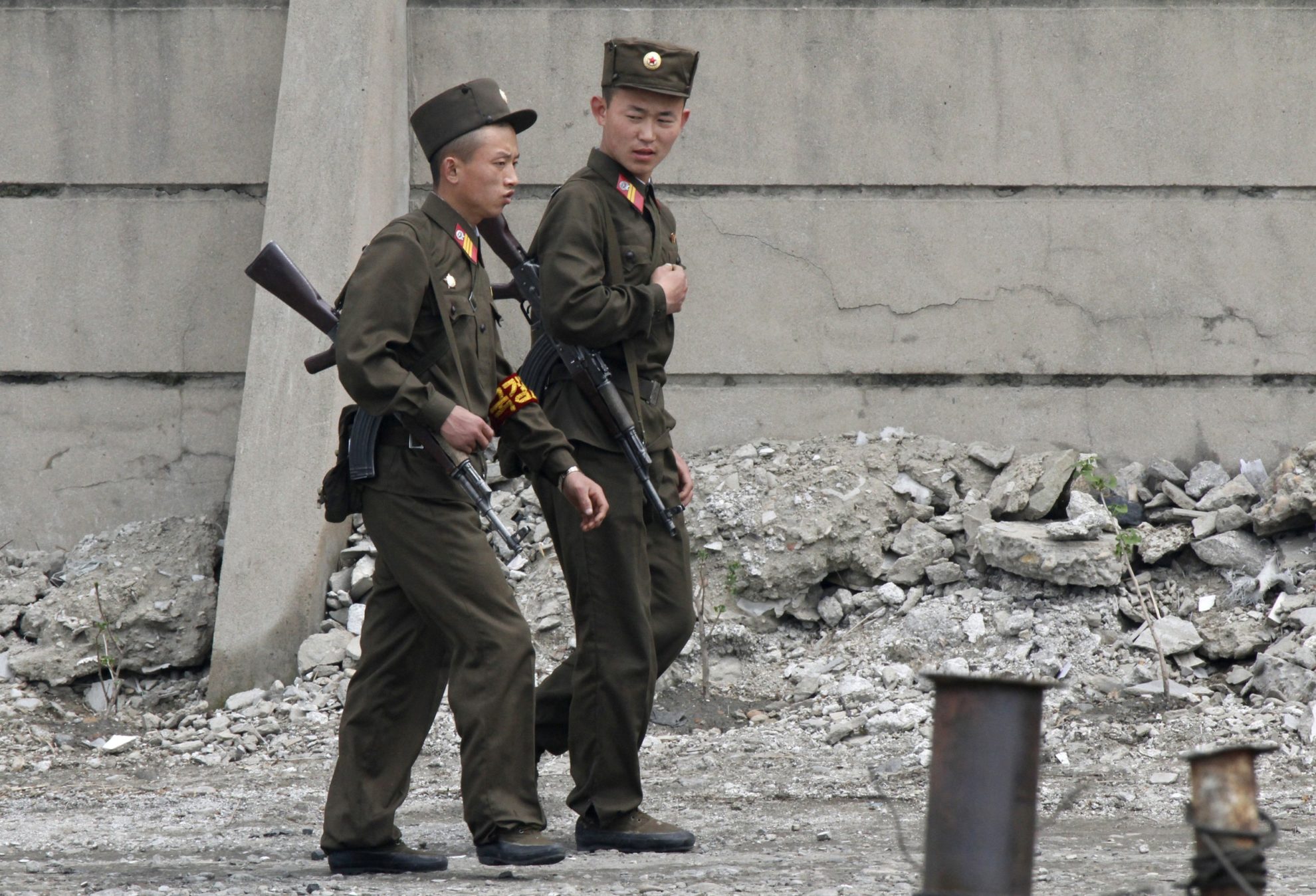Table of Contents
- North and South Korea soldiers cross DMZ in peace - BBC News
- North Korean troops have been allowed access to the…
- North Korea Set to Blow Up Cross-Border Roads with South Amid Drone Row
- South Korean soldiers fire warning shots after North Korean troops ...
- Ukraine Says 10,000 North Korean Troops Coming to Fight for Russia ...
- North Korea’s powerful Army officer ‘bows in shame’ after Kim Jong un ...
- Korean War Documentary: Meet the Combat Heroes of a Forgotten War - The ...
- Shots fired after North Korean troops cross border into South in the ...
- North Korean Elite Troops Deployed in Layers at the Sino-Korean Border ...
- US soldier in North Korean custody after crossing DMZ line - ABC News

On [current date], a dramatic incident unfolded along the Demilitarized Zone (DMZ) between North and South Korea, as a North Korean vessel crossed the maritime border, prompting the South Korean military to fire warning shots. This sudden escalation of tensions has raised concerns about the fragile peace in the region and highlights the ongoing challenges in maintaining stability along one of the world's most heavily militarized borders.


Incident Details

According to reports from the Joint Chiefs of Staff in Seoul, the North Korean ship crossed the Northern Limit Line (NLL) in the Yellow Sea, which serves as the de facto maritime boundary between the two Koreas. The South Korean navy responded swiftly, firing warning shots to deter the vessel from proceeding further into South Korean waters. The North Korean ship eventually retreated back across the NLL without any further incidents reported.

The South Korean military has stated that the warning shots were fired as a precautionary measure to protect the country's territorial waters and to prevent any potential threats to national security. The incident is currently under investigation to determine the intentions behind the North Korean vessel's actions.


Regional Tensions

The DMZ, which separates North and South Korea, is one of the most heavily militarized borders in the world. The area has been a focal point of tension since the Korean War (1950-1953), with both countries maintaining large military presences along the border. Incidents such as this recent border intrusion highlight the ongoing risks of miscalculation or accidental conflict that could have significant regional and global implications.

Despite efforts to ease tensions through diplomatic channels, including the 2018 Inter-Korean Summit and the Singapore Summit between the United States and North Korea, challenges persist. The international community continues to call for denuclearization and a peaceful resolution to the Korean Peninsula's security issues.

International Response
The international community has urged restraint and called for a peaceful resolution to the situation. The United Nations Command, which oversees the armistice agreement that ended the Korean War, has been informed of the incident and is monitoring the situation closely.
The United States, a key ally of South Korea, has reaffirmed its commitment to the defense of South Korea and the maintenance of regional stability. Other nations in the region, including China and Japan, have also expressed concern over the incident and the potential for escalation.
The recent border intrusion and the subsequent firing of warning shots by South Korea serve as a stark reminder of the ongoing tensions and challenges along the Korean Peninsula. As the international community works towards a peaceful and denuclearized Korea, incidents like this underscore the need for continued vigilance and diplomatic efforts to prevent miscalculations and ensure stability in the region.
For the latest updates on this developing story and more news from around the world, stay tuned to our news section. Follow us on social media for real-time updates and in-depth analysis of global events.
Keywords: South Korea, North Korea, Border Intrusion, Warning Shots, DMZ, Korean Peninsula, Tensions, Diplomacy, Denuclearization, Regional Stability, International Community, United Nations, United States, China, Japan.